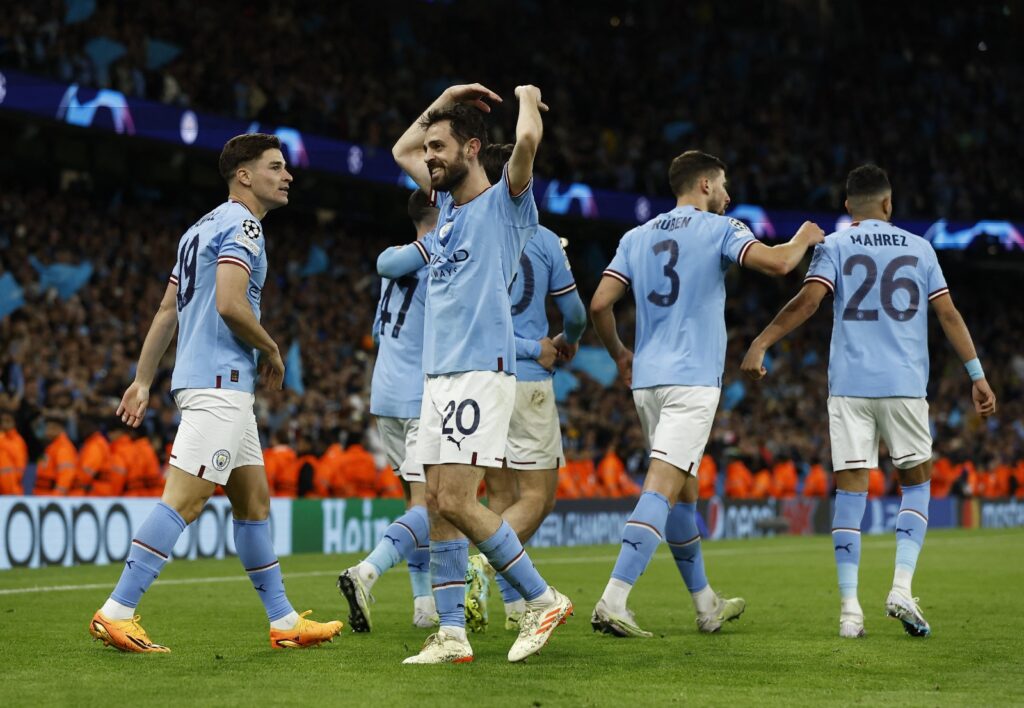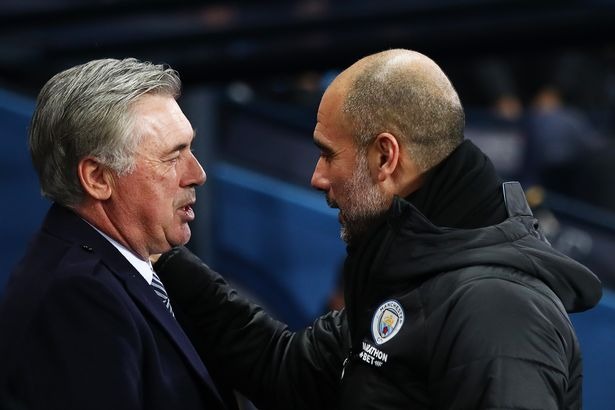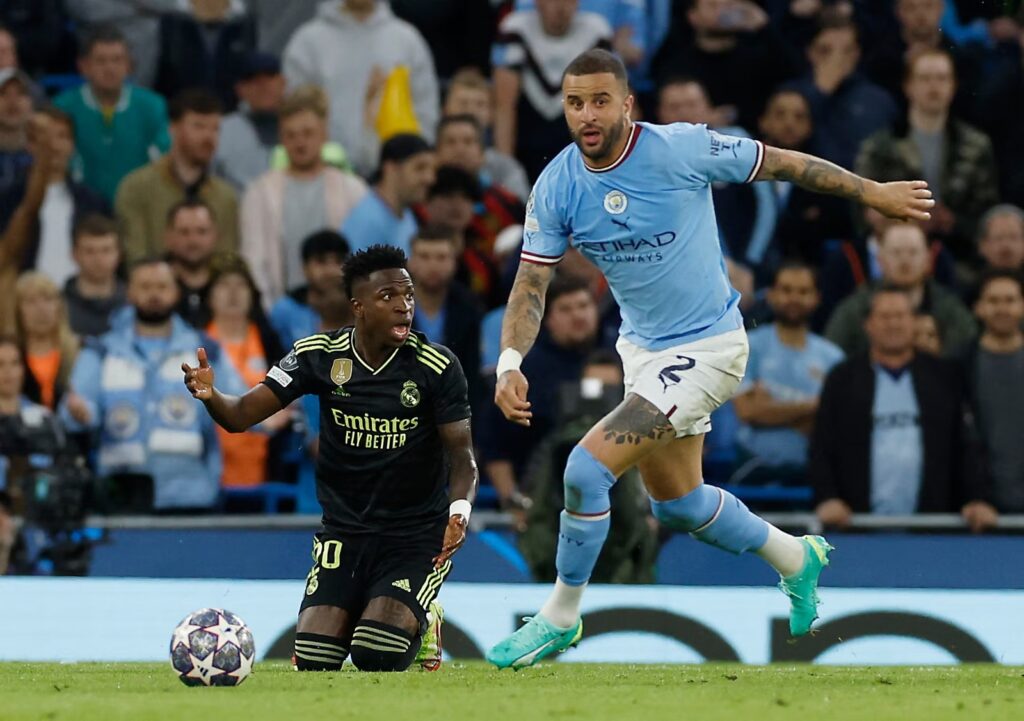
Pep Guardiola knows better than anyone what it means to be obsessed with the European Cup, or the Champions League as it is now known. FC Barcelona first reached the final in 1960-61, losing to Eusebio and Benfica in Bern. A quarter-century later, as red-hot favourites, they lost on penalties to Romania’s Steaua Bucharest. There was success in other European competitions, but the Holy Grail eluded them.
It didn’t help that the European Cup had been dominated by Real Madrid, their great rivals, in the years after its inception. By the time Barcelona reached a third final in 1991-92, Real had won the “cup with big ears” six times. Barcelona weren’t just in their shadow. They weren’t even in the frame.
Whatever he had achieved for the club as a player, it was what Johan Cruyff did as coach that made him such a revered figure in Barcelona. Guardiola was his holding midfielder that night at Wembley in May 1992 when a Ronald Koeman free-kick saw off Italy’s Sampdoria and finally gave Barcelona custody of the trophy that matters above all else in club football.
It would take Barcelona another generation to add to that, but the jinx was ended in 1992, and the inferiority complex partly addressed.
When Guardiola arrived at Manchester City in 2016, he found a similar situation. By then, the investment from Abu Dhabi had started to near fruit, and two league titles had been won. But he found an ambivalent attitude from fans towards the Champions League. This was partly because of the decades of taunting that City fans had had to endure from their rivals.
Manchester United’s history has the Munich air disaster (while returning from a European Cup tie in Belgrade) and the redemption at Wembley a decade later at its heart. Liverpool were the kings of Europe for a decade from the mid-1970s. Knowing that they had nothing comparable to speak of, many City fans chose to pretend that the Champions League didn’t matter, that it was just a distraction alongside the real business of winning domestic championships.
Guardiola was appalled by that attitude. Though he only addressed the atmosphere at the Etihad on European nights on a couple of occasions, his every reference to Anfield’s intimidating aura was a coded message to City fans – ‘You need to be more like this.’
On Wednesday night, against Real, those fans certainly stepped up. As the most celebrated club football team of the modern era was torn to shreds, chewed up and spat out by wave after wave of City attacks, the noise cascading down from the stands was thunderous.
Long before the final whistle, the look on Carlo Ancelotti’s face spoke volumes. He had masterminded an epic triumph a year earlier, seeing off Chelsea, City and Liverpool in back-to-back ties, but the air of resignation on the touchline at the Etihad said much about the summer of rebuilding that Real now face. Whether Ancelotti will be around to oversee it is a moot point.

Ancelotti, the most successful coach in the competition’s history, also knows what beating Real can do for the evolution of a team. After eight trophy-laden years with Roma, Ancelotti, and skilful, goal-scoring midfielder, had moved to AC Milan in the summer of 1987. There, Arrigo Sacchi was putting together a team that would change the face of European football.
The draw for the semifinals of the European Cup in 1988-89 paired Milan with Real. Neither side had won the trophy since the 1960s, but while Milan’s defence of the Serie A title had floundered in the face of a near-perfect season from Internazionale, their cross-town rivals, Real were on course for supremacy in Spain.
In front of over 85,000 at the Santiago Bernabeu, a Marco van Basten goal gave Milan parity. The second leg, on April 19, 1989, was the biggest night the San Siro had seen in years. Though they hadn’t been to the final since a 1-0 defeat to Liverpool in 1981, Real still had that aura in European competition. They also had Hugo Sanchez, Mexican goal-scorer supreme, and Emilio Butragueno, the Vulture, who had terrified defences during the 1986 World Cup.
In a febrile atmosphere, it was Ancelotti that struck the first blow. Receiving a pass from Ruud Gullit, he sashayed into space and let fly with a shot from more than 25 yards out. Buyo in the Real goal barely saw it. The Dutch trio of Frank Rijkaard, Gullit and van Basten would add further goals before Roberto Donadoni applied the finishing touch.

The 5-0 was an era-defining result. Even Marca, the newspaper with a pronounced Real bias, recognised as much. Their headline simply said: La Noche Más Triste. The Saddest Night.
Milan would go on to thrash Steaua 4-0 in the final. Further successes in 1990 and 1994 – Cruyff’s Barcelona, with Guardiola again in the XI, were demolished 4-0 – would make Milan only the second team after Real to win the trophy five times.
This City win gives you a similar feeling. By every metric, they toyed with Real – possession, shots on targets, pass-completion percentage. If not for a heroic performance from Thibaut Courtois – two of the saves from Erling Haaland were other-worldly – it might have been a tennis scoreline.
Back in 1968, United went to the Bernabeu with a 1-0 lead from the first leg of their semi-final. When Real led 3-1 at the break, it seemed that Sir Matt Busby’s team would be left heartbroken again. But goals from David Sadler and Bill Foulkes in the second half sent United through, and they would beat Benfica in extra-time at Wembley to lift the trophy for the first time.
City fans have had those stories rammed down their throats for generations. Now, they have their own. Those at the Etihad on May 17 will never forget the night they made the kings of Europe look utterly ordinary.



